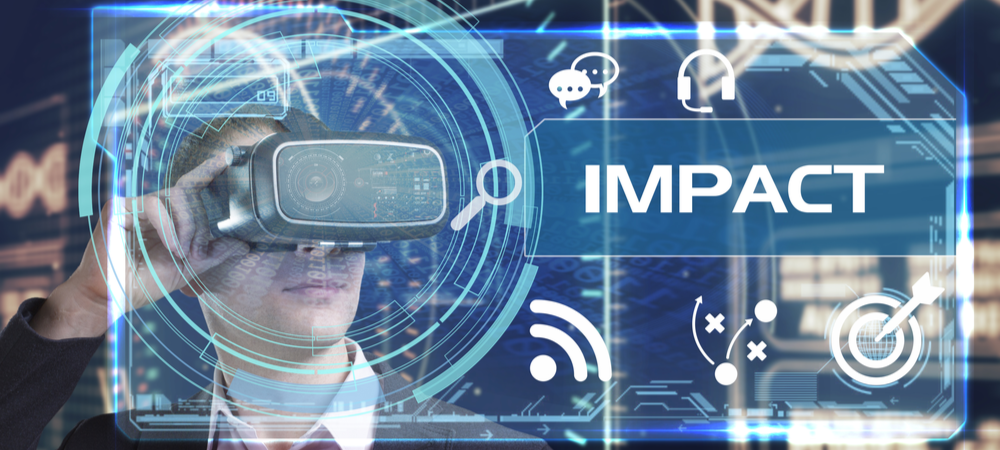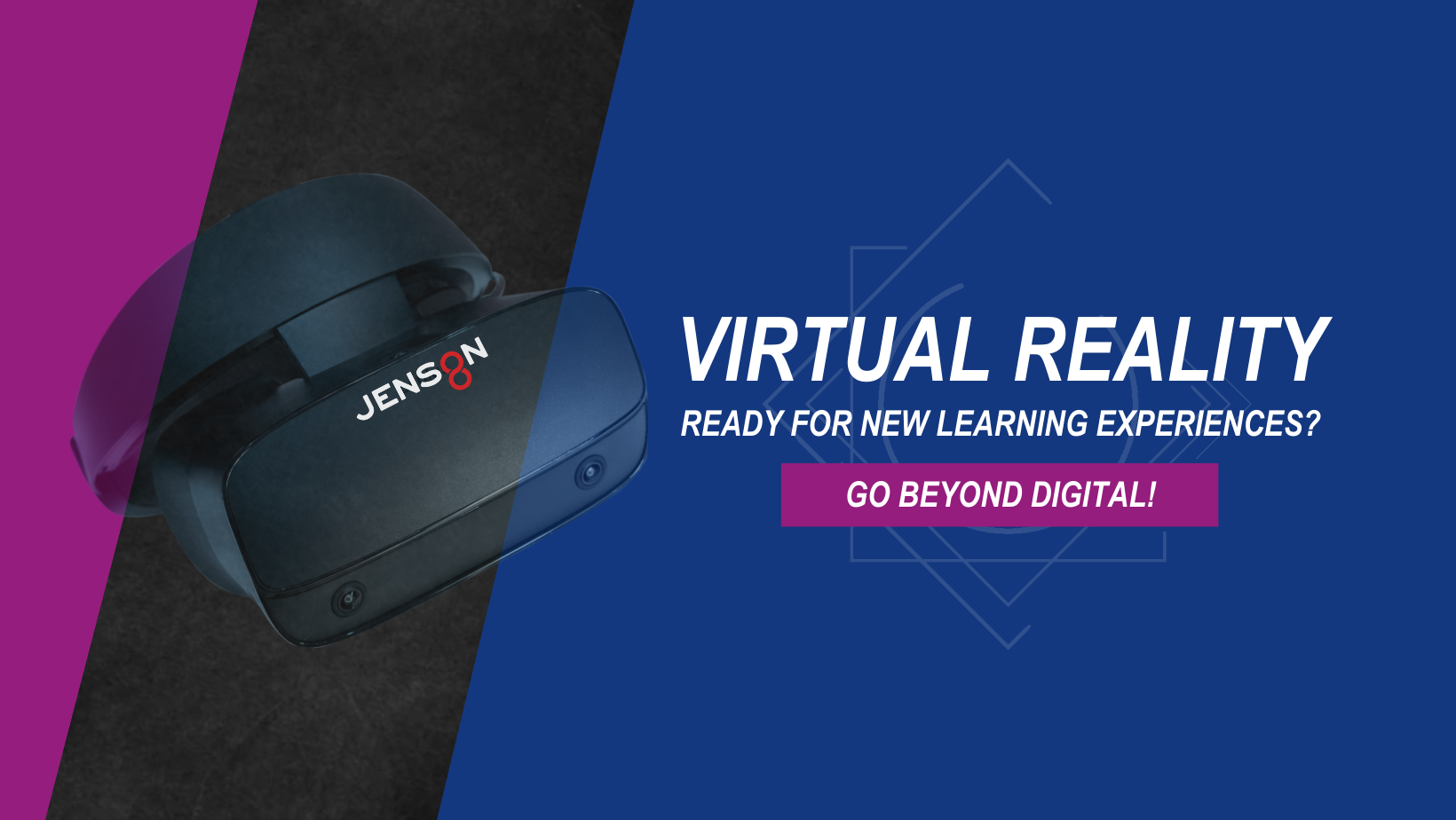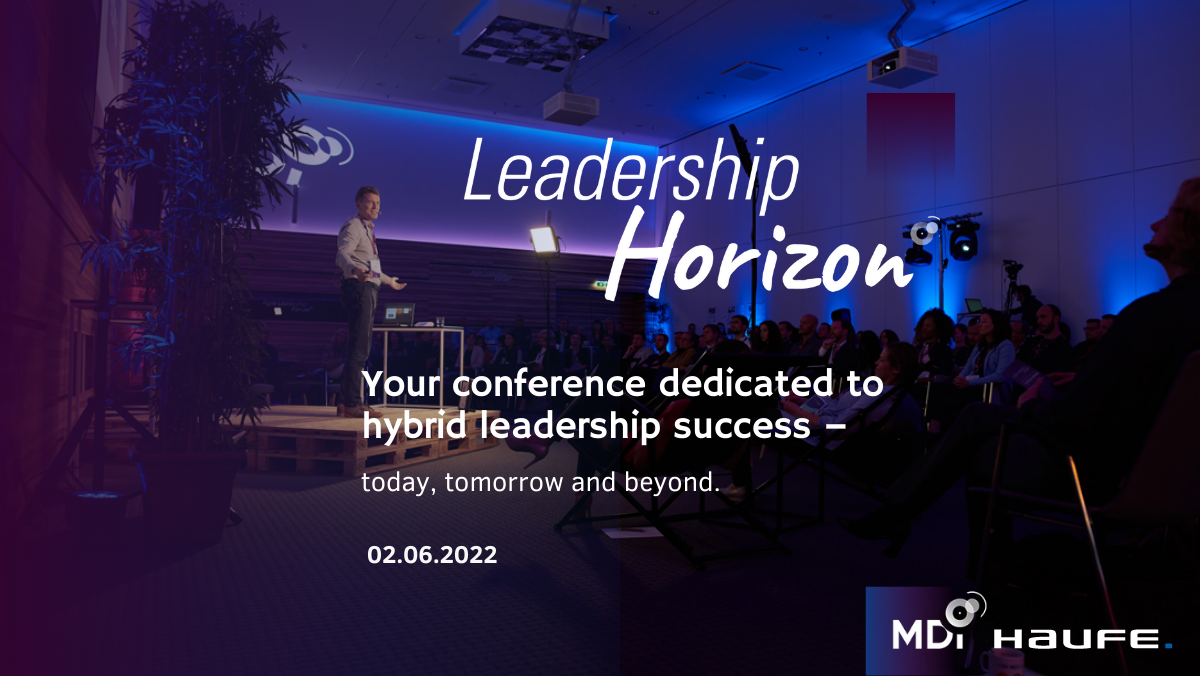How can VR help with leadership training?
Our Virtual Reality & Leadership Development Experts Anita Berger & Dominik Etzl talk in this Interview about Leadership Impact through VR.
Immersive learning through virtual reality
can help organizations address some of today’s key leadership challenges.
Why is virtual reality for leaders on the rise?
Dominik Etzl: Apart from the fact that VR is cool and is guaranteed to remain in every participant’s memory for a long time, VR leadership training solves a long unsolved problem: bringing virtual teams together in a (virtual) room where they can work together on problems and solutions – not just via the camera in front of the screen – but with full physical engagement and an almost face-to-face feeling.
What do new VR leadership trainings look like in practice?
Anita Berger: Some of the training experiences are designed to be “played” alone, practicing individual situations for yourself over and over again and constantly improving – for example, giving a presentation in front of a virtual audience or even the board of directors.
Other VR trainings involve the whole team and you can think of it more like a virtual escape room.
Others you do alone, but you have physical coaches next to you who guide you through the various scenarios and reflect on what you’ve experienced between VR experiences.
In addition, a distinction can be made between those VR trainings that are tailored to one’s own company and learning situations and those that are standardized and can thus be used in a variety of ways.
In order to have the greatest possible impact, it makes sense – as is already known from face-to-face training – not to view VR leadership training as a stand-alone solution, but to integrate it into a learning process that includes a good mix of synchronous and
What opportunities and possibilities does VR offer?
Anita Berger: VR offers the opportunity to engage with a broad range of content topics in an experiential way from different perspectives in iterative loops.
Different perspectives: Currently at MDI we work with 3 roles:
- the space travelers
- the guides/coaches
- the observers.
All have the opportunity to immerse themselves in all roles.
The space travelers are the players who, if you use the soccer analogy, are supposed to be on the field scoring the goals. The space mission is about saving others.
The guides/coaches have the opportunity to help the space travelers accomplish the mission. They are the coaches on the sidelines who do not play themselves, but are instrumental in the success of the mission by recognizing and responding to what the spacewalkers need.
Observers are tasked with watching what is happening on the field and on the sidelines, and sharing it in debriefings. One can also use the role of observers for assessment or development settings.
After each mission, participants switch roles and therefore gather lessons learned from the different perspectives.
Iterative Loops:
As in real life, there are many uncertainties, knowledge, and information that must first be acquired. Participants experience certain phases as exciting, fascinating, frustrating or chaotic.
After each round, what is experienced is reflected upon, processed and placed in the respective context of the content. The mission is started repeatedly until it succeeds. Therefore, the knowledge gained from the previous mission can be implemented right away.
Content topics:
The Apollo mission makes it possible to work on various topics and sets of questions.
For example, if the content context refers to “Overcoming Disruption” the different phases of
- “Fail Fast”
- Learning Together”
- “Performing together”
in the different missions can be experienced by the participants.
Reflection phase:
In addition, a content-related discussion can take place, for example on topics such as:
- Dealing with and coping with uncertainty, complexity and (over-)demanding situations.
- Performance as a (virtual) team
- Leading (virtual) teams to performance, through communication, collaboration, inclusion
- situationally adapted leadership
- Strengthening (self-)confidence and resilience
- taking and transferring responsibility
The novel setting offers attractive and exciting development opportunities for leaders at all seniority levels up to top executives and for entire teams.
Can you actually learn better with VR?
Anita Berger: It’s best to let the results of studies speak for themselves
- Learning takes place up to 4 times faster than in a traditional seminar setting.
- VR learners are up to 275% more confident in implementing what they have learned after training
- a 40% improvement over classroom training and
- a 35% improvement over e-learning training.
- VR participants felt 3.75 times more emotionally connected to the content than face-to-face learners and 2.3 times more than e-learners.
- Three-quarters of participants surveyed said they had a wake-up call during the VR course on diversity and inclusion and realized they were not as inclusive as they thought.
- During VR learning, participants were significantly less likely to drift off with their attention.
- In the PWC study, participants in the VR setting were up to 4 times more focused during training than their e-learning peers and 1.5 times more focused than their face-to-face training peers.
Virtual Reality for Leaders | Hands-on VR Workshop on 26.11.2021
In this compact hands-on workshop, we will show how leaders learn immersively using VR.
Experience three exciting perspectives for leadership & development in one day:
As an active participant, as a coach and as an observer.
What technology and requirements do you need for implementation?
Dominik Etzl: Until recently, the hurdle to working with VR in your own company was relatively high.
In addition to the special VR hardware from Oculus, Vive, or Sony, for example, you also needed a powerful PC to start the system in the first place. In addition, there were a lot of cables and sensors. If, on top of that, you didn’t have a permanent VR room available, but had to set up and take down again and again, or even move to a different location, you can imagine that this was partly off-putting and only suitable for a niche.
However, these times have largely been history since 2021 the latest. Nowadays, you can buy a powerful VR set starting at €350 and it includes everything you need in terms of hardware to get started. Processing power and sensors have been built into the headset in the latest models, e.g. the Oculus Quest 2, so that a PC, cables or external sensors are no longer necessary.
This makes it very easy and uncomplicated to set up and transport – even for those who have no experience with VR. In the past, it was still common to rent VR hardware – today, a purchase makes much more sense in most cases, because the price difference is cancelled out by the effort. The only requirement is now a room of about 2.5 x 2.5 meters per player, which can easily be found in most offices.
Can every company afford this?
Dominik Etzl: As already written above, one can distinguish between those VR training experiences that are tailored to one’s own company and those that can be purchased in a standardized way.
Which one is right for one’s needs depends primarily on whether the skills that are to be learned with it concern very specific processes in the company, or whether it is about, the general ability to collaborate, agile principles, handling resistance, etc.
Whereas the former usually requires several months of production time and corresponding financial resources, VR leadership training aimed at general soft skills is already available at a slightly higher normal daily training rate. Then you also have trained VR experts to ensure that the VR training is effective.
The original german article was written for magazintraining by

Anita Berger
Executive Coach, Consultant, Trainer & Managing Partner MDI
Anita Berger is an executive coach, consultant and trainer specialising in leadership development and international human resource management. She is a partner of MDI Management Development International. For more than 15 years she has worked in management and leadership positions (among others as HR-
Director at Coca-Cola Hellenic and HR Manager at Konica Minolta Business Solutions).

Dominik Etzl
Trainer & Solution Development Manager MDI & Manager Metaforum International.
Dominik Etzl is Solution Development Manager and Trainer at MDI Management Development GmbH and Managing Director of Metaforum International. His focus is on topics of digital transformation, as well as OKR (Objectives & Key Results), agile leadership and lateral leadership. His goal is to support managers in leading a valuable contribution to their environment: on an individual, corporate and societal level.



